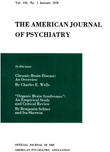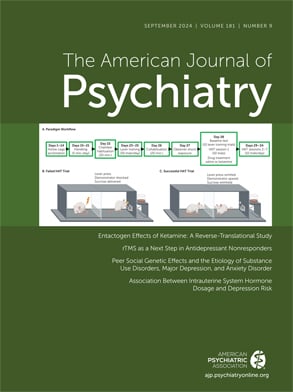Abstract
Our results suggest that those treatments, including the new drugs, which after careful diagnostic study are specifically prescribed for the unique needs of the individual patient, are the best treatments. Thus the clinical judgment group revealed the relatively most favorable treatment results, as indicated by the behavior ratings and the clinical improvement scale, and especially the MMPI findings, which reflect a far greater quantitative relief from symptoms than in the other 3 groups. Therefore we consider it premature to discard such treatments as insulin coma, electroshock and psychotherapy, in favor of the tranquilizing drugs, as has been recommended and has become actual practice in many hospitals. However, what is an even more impressive finding, is that this study re-emphasizes (at least for short-term treatment) that schizophrenia is exceedingly resistant to any form of treatment, and also that in some cases whatever treatment is used results in some slight improvement. Although we find twice as many patients unchanged or worse after 30 days, as are moderately or greatly improved, the average rating for all groups shows slight improvement regardless of method of treatment used, including the use of no special therapy at all. Beyond this our results indicate that chlorpromazine, a relatively inexpensive and easily administered form of treatment, does almost, but not quite as much, good for the short-term relief of symptoms, as do the more intensive and complex therapies such as insulin coma, electroshock and psychotherapy. We also find that reserpine, in this period of time, has little more beneficial effect than hospitalization alone. It will remain for subsequent phases of our study, by analyzing our discharge and follow-up data, to determine the longer range responses to all of these techniques.
Our findings suggest that regardless of the type of treatment given, some factors are more indicative of prognosis than others. These confirm earlier reports that rapid onset with short duration is prognostically favorable, as is a good former occupational adjustment, and that those patients with sufficient ego strength to act out in their environment appear to have a better treatment probability than those who react with withdrawal and conformity. Furthermore, in our study, those patients whose early life was beset by hostile and rejecting fathers are least likely to recover, while those with mothers who, though inconsistent in their training methods, were nonetheless sources of protection and strength, have favorable prognoses. However, for this short period of time, many factors long believed to be prognostic do not have value.
Finally, we find some consistency in our data. The patients who improve show the improvement in many aspects: in psychometric tests, in ward behavior, and in clinical interview; while those who remain most schizophrenic fail to show demonstrable improvement in any of these areas.

